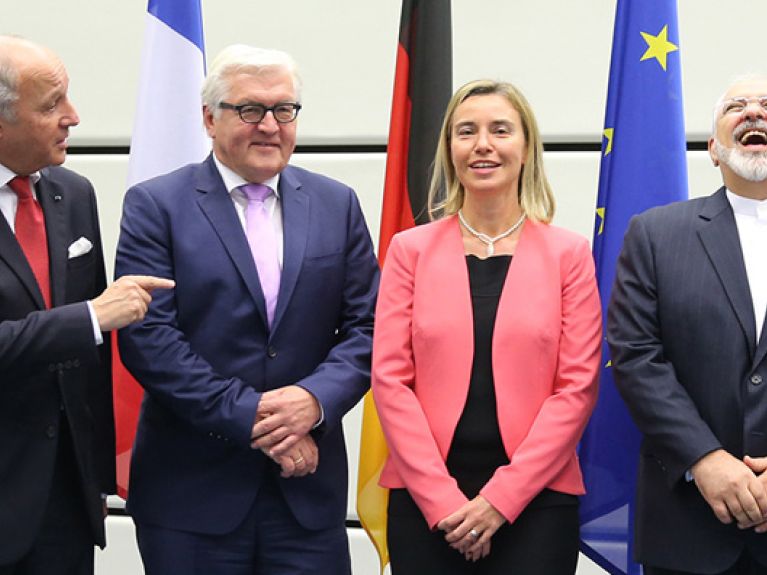To a world free of nuclear weapons
Germany and its partners are championing nuclear disarmament. The agreement with Iran is an important step.

German Federal Foreign Minister Frank-Walter Steinmeier called the agreement “historic”. It had been preceded by 12 years of tussling over the Iranian atomic programme and culminated in two weeks of highly intense negotiations: On 14 July 2015 the so-called E3+3 states (China, France, Germany, the UK, Russia, and the USA) and Iran agreed a “Joint Comprehensive Plan of Action” to bring the dispute to an end. The High Representative of the European Union for Foreign Affairs Federica Mogherini coordinated the European side of the negotiations. The “Vienna Agreement” envisages, amongst others, that Iran will restrict its ability to enrich uranium and produce weapons-grade plutonium. The idea is in this way to make certain the Iranian atomic programme exclusively serves peaceful purposes. The International Atomic Energy Organisation (IAEO) will monitor adherence to the agreement. In return, the international community has agreed to ease the sanctions against Iran.
Treaty under pressure
The Vienna Agreement is a key step en route to a world free of nuclear weapons, for which Germany in particular has campaigned. Together with its partners in the EU and other regions, the Federal Republic of Germany is committed to compliance with and advances to existing international treaties. The Nuclear Non-Proliferation Treaty of 1968 forms the basis for the international disarmament effort. Germany signed the treaty in 1975 and today a total of 193 nations have committed to adhere to it. However, the treaty is under pressure given that there are ever greater gaps between national interests. Every five years, a conference examines whether the contracting parties meet the treaty’s stipulations. At the convention in 2015 the participants failed to agree on a concluding memorandum. Points of contention included setting up a prohibited zone for weapons of mass destruction in the Middle East. In this context, together with its partners Germany aspires to strengthen the body of the treaty.
International Day for the Total Elimination of Nuclear Weapons, 26 September 2015